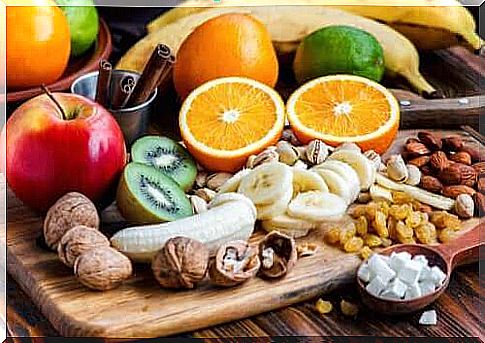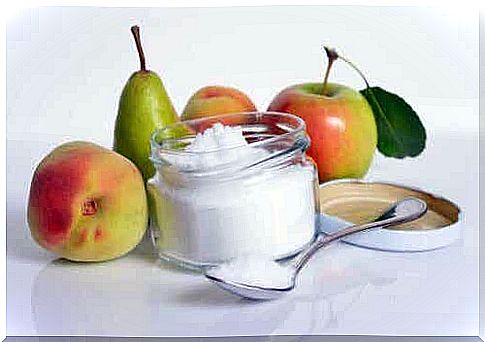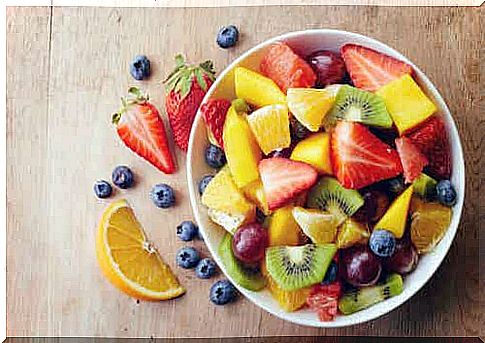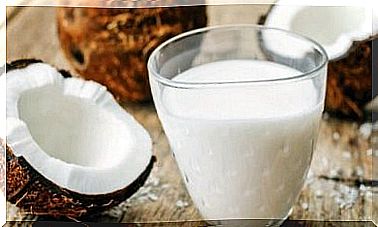Is Sugar In Fruit Really Harmful?

Chemically, sugar in fruit and refined sugar are the same. However, their health effects are completely different. In fact, people should eat more fresh fruit to satisfy their cravings, and there are many reasons for this.
The body processes the sugar in the fruit differently because the fiber in the fruit minimizes the effect of glucose in the blood. What experts refer to when they say that you should limit your sugar intake, is added sugar in cakes, sweets, cereals, fruit juices, ketchup, soft drinks, etc.
The guidelines “Sugar intake for adults and children”, published in 2015 by the World Health Organization (WHO), explain the science of sugar in more detail.
In it, the WHO clearly distinguishes between two types of sugar, natural sugars – those that occur naturally in unmodified fruits and vegetables – and added sugar.
The latter are those that are related to a higher risk of caries and chronic diseases, and for that reason they recommend that you do not exceed 10% of the calorie intake from these. However, the WHO indicates that their recommendations do not apply to natural sugar.
Added sugar vs natural sugar
Many foods contain natural sugar in the composition or are a source of nutrients that are converted into sugar in the body after assimilation.
Thus, fruit is a source of fructose, while milk and dairy products are a source of lactose. Similarly , vegetables can have fructose in varying amounts and also complex carbohydrates that are transformed into glucose after digestion so that the organism can use them.

As you have probably concluded, most foods, with the exception of meat, have natural sugars in their composition. In contrast, most industrial foods have added sugar. The industry does this to enhance the taste, increase energy intake or achieve other properties in the final result.
For example, industrial biscuits, snacks and sweets contain sugar and are the ones most manipulated by the food industry. One of the reasons is that the addition of this substance improves the taste of food and can cause some dependence. At least according to an article published in the British Journal of Sports Medicine.
The effect of sugar in fruit in the body
Simple sugars, such as glucose, fructose or others, have the same effect on the body as they are an energy substrate. However, simple sugars do not occur naturally isolated. Instead, they come with other nutrients as part of natural foods.
As you can see, the main difference lies in the process of increasing blood sugar in the body, which largely depends on the other components of the food or product in question.
Thus, a soda has no fiber, vitamins or minerals that are important for the body. In addition, the body can easily digest it because it is liquid and so that the sugar reaches the blood too easily.
Similarly, a vegetable contains healthy micronutrients, fiber and a good percentage of complex carbohydrates that take longer to digest and reach the bloodstream. This is why it is also more filling and nutritious despite the fact that it contains sugar. In fact, there is not such a high glycemic index for fruit.
The health benefits of fruit
This type of food is good for your body, as it helps to move and stimulate intestinal transit as it is easy to digest. This is because it is rich in water and fiber, has no dense starch or fat, and the estimated digestion time is around 20 minutes.
In fact, studies show that eating fruit can help reduce the risk of heart disease, stroke and other non-communicable diseases.

Fruit can also even help with weight control. In fact, a study published in 2016, conducted by Harvard researchers, suggested that their antioxidant flavonoids may have a positive effect on metabolism.
People on a flavonoid-rich diet were more likely to maintain weight as they got older, compared to those who did not consume flavonoid-rich foods. The fruits that seemed to provide the greatest benefits were apples, blackberries and pears.
Another positive property of fruit is that the soluble fiber stimulates selective growth of the microbiota. This improves the metabolism of food and reduces the risk of obesity.
Sugar in fruit is important
Finally, we must remember that the sugar in fruit is not harmful to our health. Then reduce the consumption of processed products.
Remember that jams do not qualify as one in five a day, nor does fruit juice! Of course, sugar in canned fruit does not count as fruit sugar.









